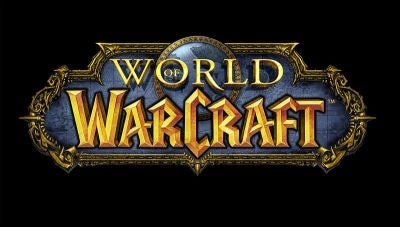Your support helps us to tell the story
From reproductive rights to climate change to Big Tech, The Independent is on the ground when the story is developing. Whether it's investigating the financials of Elon Musk's pro-Trump PAC or producing our latest documentary, 'The A Word', which shines a light on the American women fighting for reproductive rights, we know how important it is to parse out the facts from the messaging.
At such a critical moment in US history, we need reporters on the ground. Your donation allows us to keep sending journalists to speak to both sides of the story.
The Independent is trusted by Americans across the entire political spectrum. And unlike many other quality news outlets, we choose not to lock Americans out of our reporting and analysis with paywalls. We believe quality journalism should be available to everyone, paid for by those who can afford it.
Your support makes all the difference.China's Culture Ministry has accused the publishing watchdog of abusing its authority by threatening access to the popular online game, World of Warcraft, stoking bureaucratic rivalry over control of the Internet.
The ministry scolded the General Administration of Press and Publication (GAPP), which had told Chinese online game firm NetEase.com not to operate the latest version of Activision Blizzard's World of Warcraft, the Chinese-language Economic Information Daily said on Wednesday.
NetEase has said it is examining the demand.
The rare public turf war between the two agencies has exposed the tricky regulatory undergrowth that Internet companies must navigate in China.
"This just highlights the overall risks of investing in China, given that the Internet is a new industry and China itself is an emerging economy," said Dick Wei, an analyst with JP Morgan in Hong Kong.
China's Communist Party leadership has demanded tighter control over the Internet and online gaming, worried about images and words it sees as pornographic, unhealthy or subversive.
Government agencies have in turn been eager to enforce those demands, and competed to stake out control of the potentially lucrative and prestigious sector, and reap the regulatory fees.
"The Ministry of Culture believes the notice from the General Administration of Press and Publication does not conform to the relevant regulations, and clearly oversteps its authority," said Li Xiong, a Ministry of Culture (MOC) official in charge of market affairs, according to the Economic Information Daily.
"As long as they're online, these online games and publications are fully subject to administration by the MOC," he said, according to the China Daily.
Li said the Communist Party propaganda department, which controls cultural life, had in March given the Culture Ministry control over online games, according to the Chinese-language International Finance News.
Li's unyielding comments suggested the bureaucratic war over Warcraft, a role-playing game in which subscribers complete quests, slay monsters and fight each other, may not end quickly.
Access in China to the game has not yet been affected for those who have already paid for a subscription.
Gamers at an Internet cafe in Beijing said they yearned for the power tussle to end. If access to the game were blocked, gamers said they would consider moving to servers outside China, shelling out the extra expense of a new subscription.
"The only thing I want to say is I'm grieved," said Chen, a man in his mid-twenties who only gave his surname to Reuters.
"Why does such a good game have so many troubles in China when it's running peacefully in other parts of the world?"
Atul Bagga, an analyst with ThinkEquity, said that if World of Warcraft were disrupted for two months in China, he would lower his NetEase Q4 revenue and earnings per share estimates by $50 million (£30 million) and $0.09.
Bagga said such a shutdown would cause him to adjust estimates of Activision Blizzard Q4 revenue and EPS estimates by $20-25 million (£12-15 million) and $0.01.
In October, GAPP banned many forms of foreign investment into the country's online games industry, expected to grow 30-50 percent this year to up to $4 billion (£2.4 billion).
NetEase said on Monday that the GAPP halted and returned its application to operate the latest version of World of Warcraft game due to "gross violations" of regulations.
GAPP posted a statement on its Web site demanding that NetEase also suspend charging users to play the game, and disallow new account registrations, NetEase said.
The move against Warcraft put the recently relaunched popular title's future under a cloud in China, and weighed down NetEase and Activision Blizzard shares.
A spokesman at GAPP said he could not immediately answer questions about the case faxed by Reuters.
Bureaucratic feuding over the Internet can produce departures from China's usually secretive, unyielding style of government.
In late June, the Ministry of Industry and Information Technology, which has also sought to assert control of Internet content, abruptly discarded a plan to force manufacturers to bundle Internet filtering software with personal computers sold in the country.
The "Green Dam" plan, which officials said was to stamp out Internet pornography, was to start from July 1, but it was assailed by critics of censorship, industry groups and Washington officials as politically intrusive, technically ineffective and commercially unfair.
China's government was "in general very supportive of the game industry, providing tax breaks and such," said Wei, the analyst.
But in comments published on Wednesday, China's top police official said the Internet remained a worry.
"The Internet is growing at a breakneck pace, there are many weak links in social regulation, and protecting social stability faces unprecedented circumstances and challenges," Meng Jianzhu, the Minister for Public Security, was quoted as saying by the China Police Daily.

Join our commenting forum
Join thought-provoking conversations, follow other Independent readers and see their replies
Comments